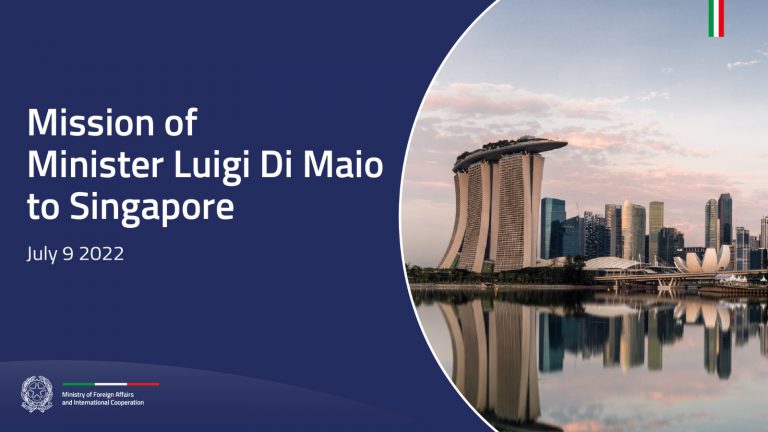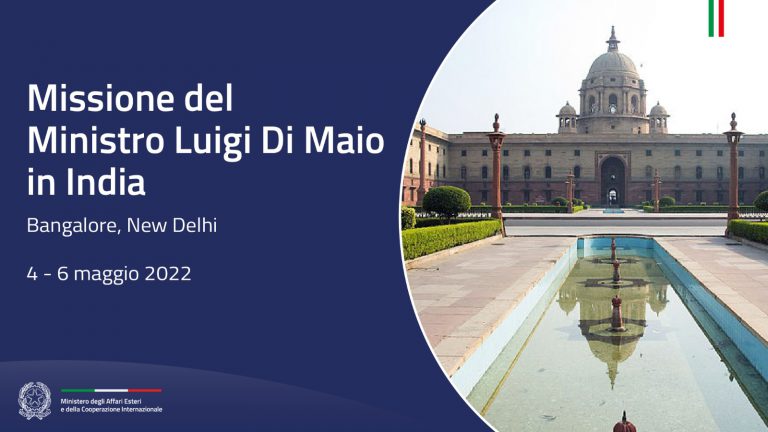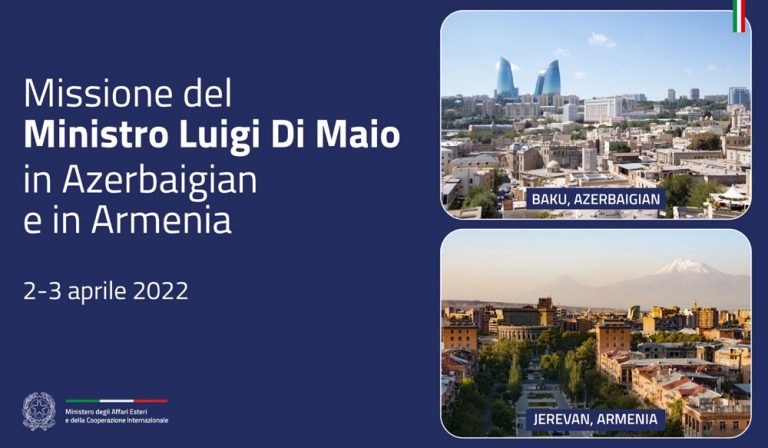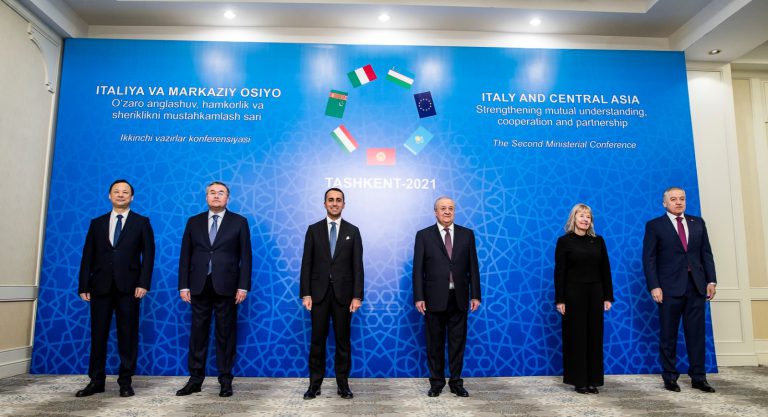She smokes, that we know. A lot. The problem is, how does she keep going? Where does she find the physical and mental energy needed just to be Emma Bonino? Or maybe we should call her “Boninox” – indestructible, like Inox steel. Emma Bonino is not just centre-stage, she owns that stage. She’s one of a kind. Half-way between the street and the palaces of power, her mastery encompasses both the political scene and the civil front, in Italy, Europe and worldwide.
Following her to Paris for a summit on Syria, to Sierra Leone for the campaign to abolish the death penalty, to Ivory Coast to sign economic agreements. And then getting her to sit down for 20 minutes in her office at the Farnesina before she takes off again for Djibouti to promote the campaign against female genital mutilation. It’s like watching a one-woman show. In this interview, given at a time when the “Marines” case has become incandescent, the Foreign Minister touches on a whole range of issues, including personal ones. She confides that she’s never had the courage to say “forever”. Maybe. But anyone who’s been following her career for 40 years would say the opposite. She hasn’t just existed “forever”, she’s existing evermore fully.
Minister, will you manage to bring the two Italian marines, Massimiliano Latorre and Salvatore Girone, back home to Italy?
“We’re making every possible effort to do so. Not me, we. This is no place for individual initiatives. The question involves all of the institutions: the Prime Minister, Parliament, the Ministers of Defence, Foreign Affairs and Justice, a Special Commissioner, the State Legal Advisers, and India’s foremost legal practices”.
The goal?
“To ensure that one concept is understood: whatever happened, the marines were on duty, they cannot be terrorists, just as Italy is not a terrorist country. So the Indian attempt to try them on the basis of an anti-terrorism law is unacceptable”.
What do you mean by “whatever happened”?
“In a state that observes the rule of law, no matter what happens, a charge must be proven. And until then, each defendant has the right to be presumed innocent”.
Your role?
“To internationalise the crisis. And that hasn’t been easy. We’re talking here about relations with India – a giant. It needs patience, discipline and months of work to inform our colleagues, persuade Germany, France and the United States to speak out, and prompt the European Union’s foreign affairs Representative, Catherine Ashton, and the President of the Commission, Barroso, to act”.
How do you feel, closeted in secret talks and negotiations?
“There’s nothing secret about it. Diplomatic activity is, by its nature, confidential. But there’s an enormous difference between secret and confidential”.
Some commentators have criticised your softly-softly approach.
“Some people think all you need to do is bang your fist on the table. If that were necessary I’d do it, but it depends on who you’re speaking to, the case you’re dealing with, and the circumstances”.
From the ship that was instructed to leave international waters, to the military personnel authorised to disembark, mistakes were made. Will we be seeing a committee of enquiry?
“I’d be in favour. But not to open up a tit-for-tat of recriminations. Understanding what happened would help us be a bit more shrewd, a bit less audacious. Which, to some extent, we were”.
The Indians have been audacious too, in applying the rules.
“Precisely. We need to protect ourselves against any potential ‘adventures’ with third countries. By applying the utmost rigour in drafting laws, with clear procedures and lines of command”.
Marines apart, do you feel, just a bit, that you’re a “mamma” to Italians around the world?
“I think I’m viewed that way. But I shouldn’t be. Tens of millions of Italians travel abroad for business or tourism. Some sort of trouble can always arise, and people call on the Farnesina’s Crisis Unit for all sorts of problems. It can go too far”.
How many cases do they deal with each year?
“Ten thousand, not counting the ones handled by our embassies. More than 300 cases of child abduction. Yes, couples can argue over children, but when one of the spouses is foreign he or she will often take the child to their country of origin. Intervening in adult relationships isn’t easy. And then we have 3,120 Italians in prison. They all say they’re innocent, but they aren’t always. We monitor civil rights. But the Farnesina can’t act as judge, especially in a third country. I don’t know if I’m explaining this clearly”.
Italy, the USA, Poland and Afghanistan. You’ve been arrested too – 4 times.
“In Afghanistan I was captured by the Taliban, but the other arrests were for civil disobedience. I openly broke a law, and was ready to pay the price of disobedience, either to open up a debate or to show that the law in question was unenforceable”.
Minister, you’ve been around for 40 years. We have a question: do you have to be born a Bonino?
“No, you become one. As a girl I always had a feeling of restlessness that I couldn’t even express”.
And then what happened?
“In summer 1974 I met Faccio, Gianfranco Spadaccia, Marco Pannella and all the others. I came from a practising [Catholic] family, but a liberal family with a strong sense of duty, in the Einaudi tradition. And in the radical ‘family’, which maybe seemed a tad eccentric, I saw people express and put into practice the things I myself felt. A sense of freedom linked with a sense of responsibility. The importance of rules and the sacredness of the law. Change through non-violence”.
And 2 years later you were in Parliament.
“That was a great education. I was 28, I was young and, what’s more, I was a woman – not a plus factor at the time – and a radical. There were 4 of us. Marco [Pannella] wanted us to learn the rules of procedure by heart, and at the start I didn’t understand why. But he was right. The only thing that can protect a minority are rules and laws”.
Why have the radicals always remained such a small minority?
“Their influence has been felt in civil society. You need only think of the Tortora case or public funding for political parties”.
Which is still in place, however.
“They’ve changed the name and now call it ‘electoral reimbursement’. In breach of the constitution”.
From right to left, in the last 20 years you’ve been linked with different political forces. Has anyone ever called you a turncoat?
“It’s happened on occasion. But I am, and remain, a militant radical. And proud to be one. That’s not a lot? Maybe. But to me it’s a reason for pride and glory”.
In Italy, do you think women are still at a disadvantage?
“Pay differentials and access to the labour market tell us that they are. By law, we don’t have discrimination, but we have it in our heads. And that’s the hardest discrimination to eradicate. If I look around I tell myself that we’ve come a long way. We can change things, so all the more reason to persist”.
Where do you see margins for improvement?
“In the new generations. But welfare, Italian-style, still rests on women’s shoulders. This country hasn’t realised that it’s getting old. Or rather, it sees that it is, but has failed to implement the necessary policies. And the weight of our elderly people is going to fall on the female part of the family. You want to be King Kong, but if you’ve got a child to rear and an elderly relative to care for, how can you hold down a job?”
Couldn’t that be a virtuous model?
“It can’t be a destiny. A community needs to allow for the aspirations of each of its members”.
Do you have a partner?
“No, I’m single. Although…”
Ready to fall in love?
“Falling in love doesn’t require any effort. It happens, like the ’flu. But unlike the ’flu, it’s immensely energising”.
Is there a right age to fall in love?
“I don’t think so. It depends on your state of mind. A ‘great love’ doesn’t happen very often. And when a great love ends, that brings great pain and you might say: never again. Or maybe you don’t even need to say that. Time goes by, and one day you realise that it hasn’t happened for a long time”.
You’ve had two foster children.
“They were children from two different families. Then the families got themselves sorted out. You know from the outset that that’ll happen, but when it does, it’s hard. That silence when I got home was unbearable, and when the girls left I had to move house too. I still see them. They’re adults now, they’ve got children, and in some way I’ve a grandmother, with three grandchildren”.
Do you regret not having children?
“A child is forever. And I’ve never had the courage to say ‘forever’”.





